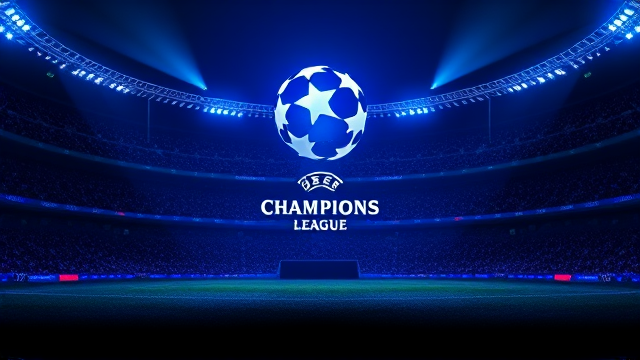UEFA Champions League to start with title holder match from 2027/28.
The tectonic plates of European football are set to shift once more, with UEFA and the European Club Association's joint venture, UC3, announcing a seismic change to the hallowed traditions of the UEFA Champions League. Starting from the 2027/28 season, the competition will kick off not with a full slate of matches, but with a singular, blockbuster event: a title holder match featuring the reigning champion.This curtain-raiser, scheduled for a Tuesday, will stand alone in the spotlight, forcing the remainder of the first-round fixtures to be pushed to Wednesday and Thursday, a scheduling nuance that itself signals a fundamental re-prioritization of the football calendar. This isn't just a minor tweak; it's a calculated power play, a piece of strategic theater designed to supercharge the commercial appeal of the tournament's opening week, transforming it from a collective beginning into a coronation of the king.Imagine the scene: the reigning champions, whether it be a relentless Manchester City, a resurgent Real Madrid, or a tactically sublime Inter Milan, walking out onto a pulsating pitch with the iconic anthem blaring, not as one of 32 contenders, but as the sole focus of the footballing world's attention, a giant with a target on its back from the very first whistle. This move, revealed as part of the media rights tender for Europe's five biggest markets—the UK, France, Germany, Italy, and Spain—for the 2027-2033 cycle, is the latest evolution in UEFA's ongoing quest to fend off the specter of breakaway leagues and maximize broadcasting revenue, creating a must-watch 'Super Tuesday' event that broadcasters will clamor for and advertisers will pay a premium to be associated with.It evokes memories of the now-defunct UEFA Super Cup but injects it directly into the competitive heart of the Champions League, granting the titleholder a unique honor that separates them from the pack, much like a yellow jersey in the Tour de France. The potential ramifications are vast.From a sporting perspective, does this give the champion an immediate psychological edge, or does it heap immense pressure upon them, making their title defense a grueling marathon that begins with a high-stakes sprint? One can draw parallels to the legendary Barcelona teams of Pep Guardiola, who played with a target on their backs every match; now, that reality is institutionalized from matchday one. Conversely, the rest of the field gets to watch, analyze, and prepare while the champion expends physical and mental energy in a high-intensity clash.The scheduling displacement to include Thursday fixtures further blurs the lines between the Champions League and the Europa League, potentially creating a more congested and demanding week for some teams and raising questions about competitive balance and player welfare. While the announcement leaves the future of the Women's Champions League in question regarding a similar change, the symbolism for the men's game is unmistakable: the champion is no longer just a participant; they are the headline act, the standard-bearer, and the first line of the story each new season. This is football in the modern era—a relentless fusion of sporting prestige and commercial imperatives, where tradition is continually reshaped by the demands of the global market, and the beautiful game's calendar is carved up to create ever more lucrative spectacle.
Latest News
The Tennessee Titans' decision to fire head coach Brian Callahan on Monday, with the team mired at 1-5, was not a sudden shockwave but the inevitable
12 minutes ago0 comments
The beautiful game, so often a theater of dreams, once again finds itself an unwilling stage for the world’s most intractable conflicts as the Italian national
32 minutes ago0 comments
The ice was absolutely electric last night, folks, as the NHL’s regular season continued to deliver the kind of drama we live for.
42 minutes ago0 comments
In the charged atmosphere of a rivalry that divides a state and captiVates a nation, Utah head coach Kyle Whittingham executed a strategic sidestep that spoke
52 minutes ago1 comments
The name Robinho evokes a specific brand of Brazilian footballing magic—the samba rhythm on the ball, the audacious dribbles, the weight of a nation's
1 hour ago0 comments
The UFC's relentless march towards the end of the year delivers another blockbuster with UFC 323, set to electrify the T-Mobile Arena in Las Vegas on the night
1 hour ago1 comments
In a move that perfectly encapsulates the delightful unpredictability of modern football culture, Russian national team and Dynamo Moscow manager Valery Karpin
3 hours ago1 comments
The tectonic plates of European football are set to shift once more, with UEFA and the European Club Association's joint venture, UC3, announcing a seismic
3 hours ago2 comments
It’s quiet here...Start the conversation by leaving the first comment.
